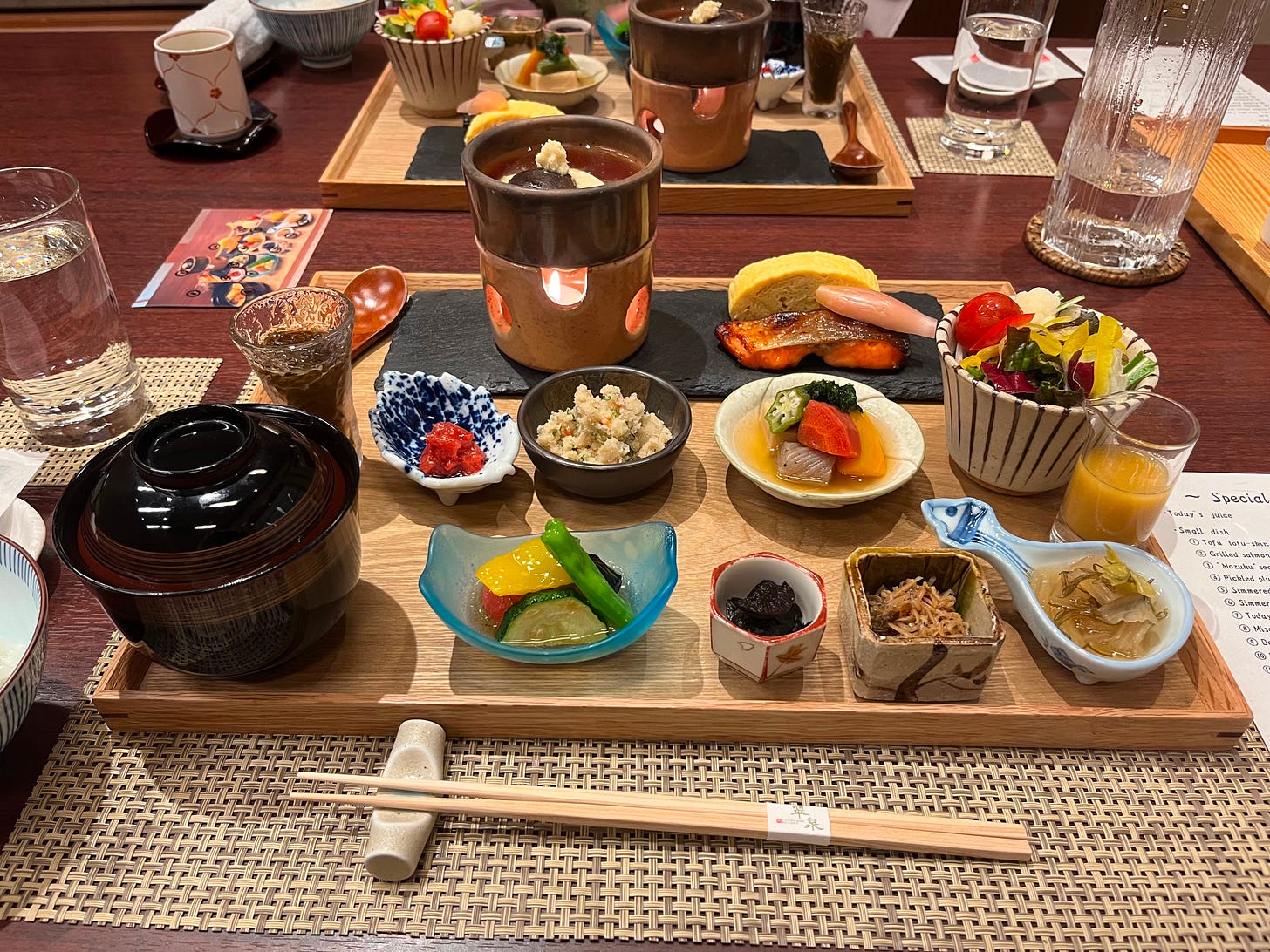The summer I turned 18, I was a counselor at an overnight camp in the woods north of Santa Barbara. During staff training week, I noticed that the handful of vegetarians ate better than the rest of us. Their meatless entrees were cooked in smaller quantities and thus better spiced. In the buffet line on the third night, I pointed to the curried tofu, but the ever-grumpy chef told me the vegetarian food was exclusively reserved for vegetarians. I nodded and swore I was a vegetarian; I’d just been too polite to say so on day one!

And so began my two-summer ruse. I was never a real vegetarian; I was a camp vegetarian. I happily chose tofu, beans, and veggie burgers over chicken patties, corndogs, and hamburgers. But when there was bacon at breakfast, I snuck it onto my plate when the chef wasn’t looking. The camp sessions ended on Friday afternoons. After the campers and kitchen staff left the premises, I caught rides with other counselors to Santa Barbara for carne asada burritos and orange chicken. Camp vegetarianism is about convenience and optimization. I was not driven by ethics but by preferences and lifelong food snobbery.
Post-camp and post-college, I was a lazy omnivore. I ate meat, but I never cooked it. Several of my friends were vegetarian, and more than one of them lapsed in my presence, telling me conspiratorially, “I only eat fish with you.”
Although I wasn’t a vegetarian, I was constantly accused of being one. I’m not sure why people looked at me and thought, “Now that’s a person who doesn’t eat meat!” Maybe it was my neuroses about recycling, my overall aesthetic, or a certain self-righteousness. Whatever it was, cue my identity crisis.
I realized a few years ago that if I was living according to my values, I probably wouldn’t eat meat. It’s better for the environment, surely. Better for one’s health, in some ways. Something something, animal rights… When my sister was a teen vegetarian, she refused to answer when people asked why she’d chosen a meat-free diet. She said, “There are so many good reasons. I don’t feel the need to choose one.” But I did.
Eager to be convinced, I submitted myself to some educational brainwashing. I watched a variety of disturbing food documentaries before I eventually found my red pill: the aggressively-titled book How Not to Die by Dr. Michael Greger. The author’s focus was on eating for optimum health and disease prevention. I digitally highlighted with vigor. As I’d hoped, there were disgusting details aplenty about meat products. There were also easy tips, like eat berries often (antioxidants, yay) and don’t bother with sprouts (not worth the high food poisoning risk). Dr. Greger didn’t ask me to be vegan or even vegetarian. He advised eating plant-based meals but remaining flexible and reasonable. The focus should be on making healthy, scientifically-backed choices rather than embracing a new identity. What a relief. I didn’t have to say “never again” to fried chicken, or join a cult, or judge my comrades!
“I’m eating less meat,” I told people. They said, “Oh, interesting, let’s share the lamb curry.” “Less” is not a convincing argument. Halfway through the book, I gave up “less” and committed to “none.” No poultry, no meat. “I am pescatarian,” I said, because whatever Dr. Greger may advise, my permeable boundaries needed reinforcement.
Giving up meat sounds like a sacrifice, but I experienced such relief when my choices on a menu were suddenly limited. Paradox of choice? Buh-bye! Ordering anxiety? I don’t know her!
Now when people assumed I didn’t eat meat, I could assure them they’d accurately stereotyped me. We all felt less cognitive dissonance. I still got to eat fish and seafood, which I like so much more than poultry (chicken has texture problems; turkey is boring; quail is cute) and mammal meat (often delicious but not fish). Again, I was only halfway through the book at this point. I figured by the time I finished it, I might be ready to give up seafood and fish as well. Or maybe not! I hoped for incontrovertible evidence that both were necessary for a healthy diet. Nutrition, however, is part science, part capitalism, part emotion, part Big Dairy, and part historical fiction. In other words, I finished the book, and I kept eating fish and seafood. I still do, only partly because my husband tells me it would significantly lower his quality of life if I stopped.
Speaking of spousal pressure, I ate meat on our trip to Japan last February. One week before our trip, I prepared my stomach by eating some of the best LA meat of my pre-How Not to Die gustatory memories. I ate cochinita pibil tacos from Guisados; pastrami kee mow and fried chicken from Night+Market; and a barbacoa burrito bowl from Chipotle. I’d be embarrassed of that last one if it weren’t so consistently delicious. In Japan, I ate pescatarian most of the time, but when it wasn’t possible or optimally delicious to do so, I didn’t. Being a flexivore on vacation is a lot like being a camp vegetarian. It’s a decision of practicality and optimization. It’s saying, “I care more about this experience than about how I’ve defined myself in the past.” Or maybe I just lack discipline.
On the flights, though, I was a strict plane vegetarian. Specifically, a Hindu vegetarian — the tastiest option airlines have to offer. Strong recommend.





What Kay said! Relatable, rings true! But give yourself some credit. It hasn't been easy to stop eating meat, you've been diligent and strong-willed. Whatever the reason, it's no small feat!
Savannah, you always provide such interesting food for thought. This time it’s actually thoughts about food. :)
You have a fun take on the world around you and, thankfully, share it through your gift of writing so we all can benefit from your creativity. Thank you!